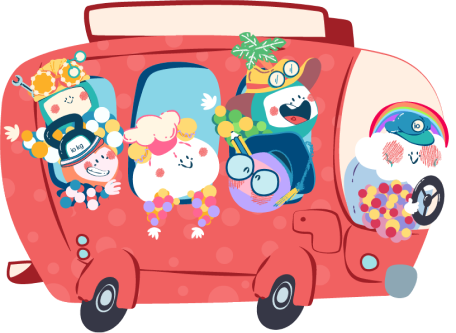Crocodiles are ancient survivors of the extinction event that killed off the dinosaurs. These cold-blooded predators that kill and swallow prey whole are some of evolution’s greatest products. However, there’s so much more to these animals than the fearful reputation that they’ve been given. Here are some amazing facts about crocodiles that you probably don’t know.
Some Bite-Sized Crocodile Facts
They Can Go Through 4,000 Teeth in a Lifetime
Courtesy of Pexels
Depending on the size and species, crocodiles can have as many as 60-110 teeth at a time. They also keep growing new ones to replace worn-out ones. In fact, according to research, scientists estimate that crocodiles can replace each tooth about 50 times in a lifetime.
They Have Bigger Muscles for Closing Their Jaws than for Opening Them
Crocodile jaw muscles are not equal in size. Because these animals have always lived their lives as predators, they have finely evolved all the muscles necessary for living as one – most especially the jaw muscles for clamping down on prey.
In fact, because of these muscles, crocodiles can bite down with a force of 5,000 pounds per square inch (psi) – the strongest in the animal world. However, once they close their mouth, you can stop them from opening with just a rubber band or even just your bare hands.
They Can Hold Their Breath Underwater for an Hour or More
Courtesy of Pexels
Being reptiles, crocodiles don’t have gills, and therefore need to breathe in air to survive. However, since they hunt in the water and spend most of their lives there, crocodiles have evolved extraordinary adaptations to remain in their underwater territory for long periods:
- They have a 4-chambered heart like humans which is efficient at keeping oxygen-rich blood away from oxygen-deprived blood.
- They have a special opening between their right and left aorta that can be controlled to allow blood to skip the trip to the lungs and just go back to the body during diving.
- They can lower their metabolism to reduce energy expenditure, thus conserving the oxygen in their blood.
- They can tolerate more anaerobic respiration – a type of energy production without oxygen, but with a toxic byproduct called lactic acid.
They Deliberately Swallow Stones to Help Grind Food in Their Stomach
Crocodiles have been observed to swallow small stones occasionally. Scientists have discovered that these stones, called gastroliths, act like pestles that grind, soften, and break down food items in the crocodile’s stomach. This is especially helpful because crocs can prey on large animals with tough hides like wildebeests, buffalos, cattle, horses, zebras, and on some occasions, even hippos. Moreover, they like to swallow their prey whole (since they don’t chew their food). Watch them catch large prey here.
Crocodiles May Be Slow on Land, but They Can Be Really Quick in the Water
Because they live most of their lives in the water, crocodiles did not develop legs for sprinting. However, their legs are still powerful enough to carry their whole body for short walks or runs on land (top speed of 11 mph). They often do this when transferring to a different pool or when finding good nesting spots.
They did develop a very powerful tail to propel them in the water. In fact, with a streamlined body and a tail that’s almost half their whole length, they can glide in the water gracefully at 22 mph. In contrast, the fastest Olympic swim on record is 4.7 mph.
They Live Long Lives
Crocodiles can live amazingly long lives. Saltwater crocs, for example, have an average lifespan of 70 years. Nile crocodiles, the second largest species of crocs (next to the saltwater crocodiles) can live up to 100 years old. However, the oldest crocodile on record is a freshwater croc living in the Australia Zoo. This croc named Mr. Freshie is believed to be at least 140 years old.
They Can Grow Massive
Courtesy of Guinness World Records
Since crocodiles have no natural predators (except for other crocodiles), they tend to grow very large, especially when resources are available. The largest species of crocs, the saltwater crocodiles, can grow to lengths of over 6m and weigh as much as 1000 kg. (That’s almost the same length as a 6-wheeler truck.)
By far, the longest crocodile ever caught alive measured 6.17m and tipped the scale at 1,075 kg. This monstrous saltwater croc was captured in a small province in the Philippines, Agusan Del Sur, and was named “Lolong”. Unfortunately, he died in 2013 due to pneumonia and cardiac arrest. He was estimated to be 50 years old. Watch his capture here.
They Roll to Overcome Prey and Tear Flesh Apart
Courtesy of Pexels
During feeding, crocodiles are often seen doing a maneuver called a death roll. This particular behavior is the evolutionary equivalent of chewing or tearing in crocs. Since these reptiles do not have arms for holding on to prey, they resort to rolling and thrashing to overwhelm and tear their prey to pieces. After all, swallowing large prey can be quite difficult even for them (although it is possible).
Frequently Asked Questions
How do crocodiles differ from alligators?
Crocodiles and alligators share plenty of similarities since they both belong to the same order, Crocodilia. However, they do come from two different families – Alligatoridae (alligators) and the Crocodyloidea (crocodiles). There’s a third family called Gavialoidea (gharials), but they’re more distinct looking because of their long and very narrow snouts. You can learn more about gharials here.
According to experts, here are some of the best ways to tell a crocodile from an alligator:
- Crocodiles have longer and more V-shaped noses compared to alligators which have broader and more U-shaped noses.
- When crocodiles close their mouths, their teeth (both the upper and lower ones) show, and almost interlock. However, in alligators, the upper jaw is wider, so when they close their mouths, their lower teeth sink into their upper jaws and disappear from view. Only their upper teeth show when their mouths are closed.
- Crocodiles and alligators both have salt glands on their tongues, but they seemed to have stopped functioning in alligators. These functional salt glands in crocodiles allow them to survive in seawater.
Do crocodiles produce tears?
Yes, they do. They have lachrymal glands that produce tears. However, these tears serve as a cleaning solution to reduce bacterial growth and as a lubricant for the nictitating membrane as it moves across the eye’s surface. They do not shed tears out of sadness. This is probably the reason for the use of the phrase “crying crocodile tears”.
Can crocodiles regenerate lost limbs or appendages?
No, they can’t regenerate lost limbs unlike smaller reptiles (like common house geckos), but they do have a superior immune system that helps them prevent infections and heal quickly. This is important because amputation of limbs is something that is not an uncommon event for them, especially in places where crowding happens. Lots of crocodiles end up losing a leg or two as a result of a bite from another croc. Fortunately, this does not affect their ability to survive or hunt.







